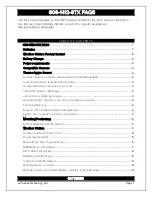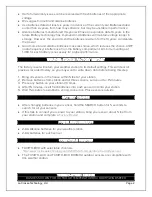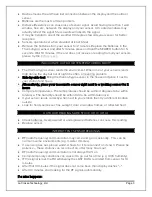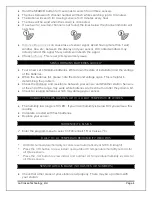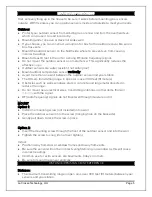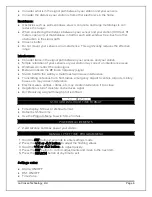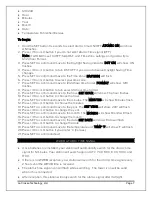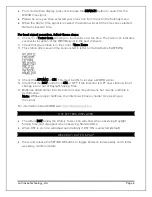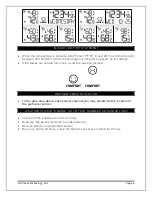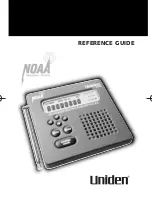
La Crosse Technology, Ltd.
Page 5
MOUNTING/POSITIONING
First, set everything up in the house to be sure it works before mounting your sensors
outside. With 3 sensors you can position sensors inside and outside to meet your needs.
Outdoor:
•
Protect your outdoor sensor from standing rain or snow and from the overhead sun,
which can cause it to read incorrectly.
•
Mounting under an eave or deck rail works well.
•
If you choose, you can construct a small roof or box for the outdoor sensor. Be sure a
box has vents.
•
Mount the outdoor sensor on the North side where to prevent sun from causing
incorrect readings.
•
Mount at least 6 feet in the air for a strong RF (radio frequency) signal.
•
Do not mount the outdoor sensor on a metal fence. This significantly reduces the
effective
•
Outdoor sensors are water resistant, not waterproof.
•
Mount outdoor temperature sensor vertically.
•
Avoid more than one wall between the outdoor sensor and your station.
•
The HIimum transmitting range in open air is over 300 feet (91 meters).
•
Obstacles such as walls, windows, stucco, concrete and large metal objects can
reduce the range.
•
Do not mount near electrical wires, transmitting antennas or other items that will
with the signal.
•
RF (radio frequency) signals do not travel well through moisture or dirt.
MOUNT
Option 1:
•
Install one mounting screw (not included) into a wall.
•
Place the outdoor sensor onto the screw (hanging hole on the backside).
•
Gently pull down to lock the screw in place.
Option 2:
•
Insert the mounting screw through the front of the outdoor sensor and into the wall.
•
Tighten the screw to snug (do not over tighten).
Indoor:
•
Position away from door or window frames and away from vents.
•
Be sure the sensor will not be in direct sunlight shining in a window as this will cause
incorrect readings.
•
Common use for extra sensors are basements, baby’s room etc.
•
Be sure to mount the sensor vertically.
DISTANCE/RESISTANCE/INTERFERENCE
Distance:
•
The maximum transmitting range in open air is over 300 feet (91 meters) between your
sensors and your station.

